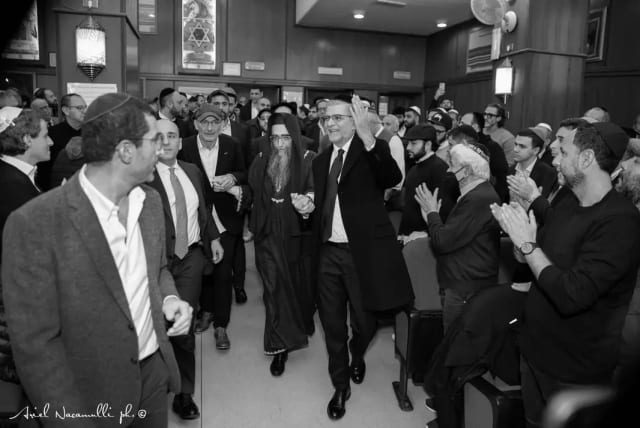Watch Rabbi Pinto: "Feeling resentment about studying Torah? It’s forbidden"

Rabbi Yoshiyahu Pinto’s educational path has become popular in the Jewish world. At its core, Rabbi Pinto advocates that there is no black and white, but each and every person has his own unique role, and each one has a special rectification [tikkun] for which he came into the world.
Watch Rabbi Pinto’s full words:
Shuva Israel
In his last talk, Rabbi Pinto pointed out that in Jewish history there were leading Jewish sages who worked for their livelihood, such as Rabbi Chaim Ben Attar who was a goldsmith, Rabbi Yochanan the shoemaker, and Rabbi Yitzchak the blacksmith. Many other righteous individuals worked for their livelihood while living lives devoted to the Torah.
"One’s situation is contingent and constantly changing, and each person has to evaluate what is best for his soul," Rabbi Pinto added. "One person’s strong point is expertise in Jewish law. Another person should be an expert in Gemara, another in Jewish ethics, and another in all Torah topics."
Rabbi Pinto likened this to "a person who sends his son to become an accountant or a lawyer. Every person has to know what his essence is. One person should sanctify the name of heaven by being a good doctor, another should sanctify the name of heaven by being a scrupulous lawyer and another should be completely detached from earning a livelihood and should instead learn in a beit midrash. But to be resentful about studying Torah? To act disgruntled to everyone and make one’s family and wife resentful and make one’s home a resentful place? This is forbidden. His children will grow up unhappy and will later end up in bad places. This is not good."
"Better to be smart. A wise man is better than a prophet. A person should have a rabbi to guide him in how to lead and conduct his home. The role of the rabbi is to understand the essence of a person’s soul and to direct him. It is a person's duty to do exactly what his rabbi tells him, and not just follow his advice arbitrarily. Because ‘arbitrarily’ has no value," Rabbi Pinto concluded.
This article was written in cooperation with Shuva Israel
Jerusalem Post Store
`; document.getElementById("linkPremium").innerHTML = cont; var divWithLink = document.getElementById("premium-link"); if (divWithLink !== null && divWithLink !== 'undefined') { divWithLink.style.border = "solid 1px #cb0f3e"; divWithLink.style.textAlign = "center"; divWithLink.style.marginBottom = "15px"; divWithLink.style.marginTop = "15px"; divWithLink.style.width = "100%"; divWithLink.style.backgroundColor = "#122952"; divWithLink.style.color = "#ffffff"; divWithLink.style.lineHeight = "1.5"; } } (function (v, i) { });
